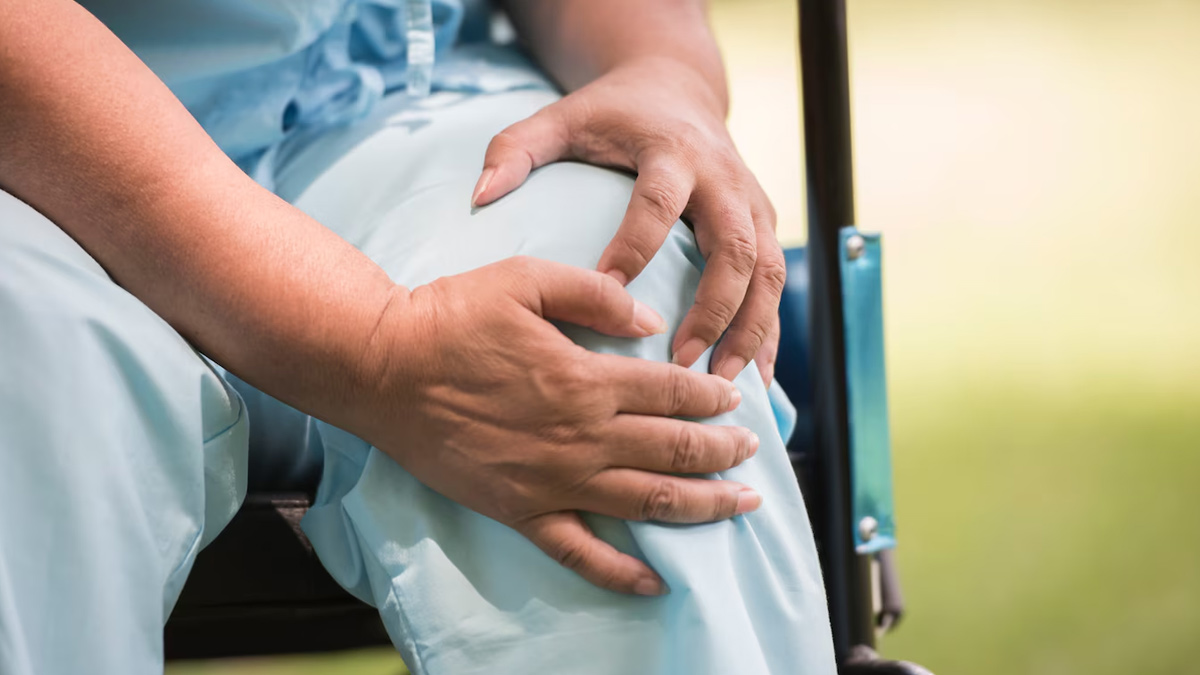
Knee pain is extremely common, especially in older adults and people who lack physical activity. However, it is important to know that it’s not something you need to simply “learn to live with”. Whether you’re experiencing stiffness, weakness, or occasional discomfort, there are plenty of ways you can keep your knees strong, flexible, and healthy for years to come. If you're wondering what those "ways" are, we've got you covered with some expert-recommended advice.
Table of Content:-
Regular Low-Impact Exercises

Speaking with the OnlyMyHealth team, Dr Dhruv Rawal, Assistant Professor, Department of Orthopaedic, NIIMS Medical College and Hospital, Noida, recommends indulging in regular daily exercises that help keep your knees engaged and moving. He advises doing low-impact activities like cycling, swimming, and walking.
Also Read: 6 Easy Exercises To Improve Joint Health In Older Adults
Low-impact exercises minimise the stress on knee joints while also providing the benefits. These exercises not only help strengthen muscles and increase flexibility but also improve circulation.
Strength Training
Dr Rawal also recommends incorporating strength training with bodyweight exercises into one's routine. These include exercises like squats and lunges that can also help build the muscles around the knee, and provide better support.
However, it is crucial to ensure that you continue with low-intensity exercise to minimise pressure on the knees. Moreover, a study published in JAMA found that high-intensity strength training doesn’t ease knee pain or reduce joint pressure more than low-intensity training or standard care in people with knee osteoarthritis. In fact, high-intensity training was associated with more side effects.
Weight Management Is Key

Weight management is an important part of maintaining your knee health. Dr Rawal says, “Extra weight puts more stress on your knees, which can lead to wear and tear over time.”
According to a 2010 study published in Current Opinion in Rheumatology, researchers found that a growing number of people, especially those in their 40s–60s, were developing knee osteoarthritis, and obesity was a major contributor.
Fast forward to 2022, a community study published in the JAMA found that an 18-month diet and exercise program resulted in a small but significant improvement in knee pain in obese people with knee osteoarthritis, although its clinical significance is unclear.
Role Of Foods And Supplements
According to Dr Rawal, certain foods can help support joint strength. Omega-3 fatty acids found in fish, nuts, and seeds are great for reducing inflammation. Turmeric is another superstar with its anti-inflammatory properties. Supplements like glucosamine and chondroitin can also be beneficial, but it’s best to consult with a healthcare professional before starting any new supplements.
Also Read: Expert Lists 6 Low-Impact Workouts Beginners Should Start With
Posture Matters

Maintaining proper posture helps keep your knees aligned and reduces unnecessary stress on the joint. Stand up straight, avoid slouching, and make sure your knees track directly over your toes when sitting down or getting up.
Choose Proper Footwear
Supportive, well-fitted shoes can make a big difference in protecting your knees. Look for pairs with strong arch support, a cushioned sole, and a comfortable fit to ease pressure and improve stability with every step.
Know The Difference Between Knee Pain Due To Ageing Or Arthritis
Knee pain can arise from a variety of causes, making it difficult for people to identify the exact source of their discomfort. Dr Rawal says, “Distinguishing between normal ageing and early signs of arthritis can be tricky. Normal ageing might include some stiffness or occasional discomfort, but if you notice persistent pain, swelling, or a decrease in range of motion, it could be a sign of arthritis.”
Conclusion
While knee pain is a common complaint as we age, it’s far from something you need to just put up with. Making lifestyle tweaks, staying active, strengthening the muscles around your knees, and managing your weight can go a long way in keeping you comfortable. Always listen to your body — if pain persists, worsens, or starts affecting your daily routines, see a doctor for proper evaluation and guidance.
Also watch this video
How we keep this article up to date:
We work with experts and keep a close eye on the latest in health and wellness. Whenever there is a new research or helpful information, we update our articles with accurate and useful advice.
Current Version